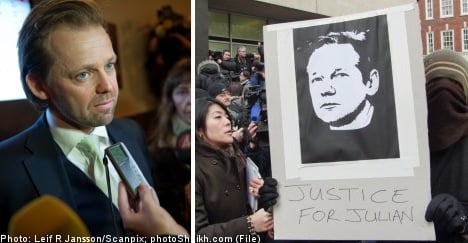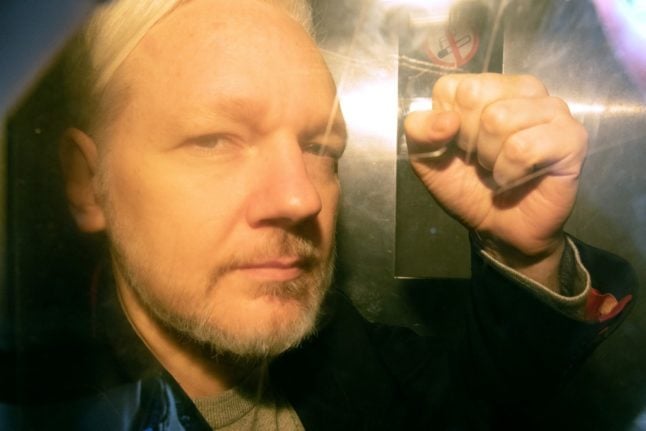Speaking shortly after a UK court ruled that Assange should be extradited to Sweden, Swedish defence attorney Björn Hurtig, who represents the WikiLeaks founder in Sweden, reiterated his disdain for the handling of his client’s case by Swedish prosecutors.
“I’ve long had concerns about how the objectivity of the prosecutors and how they’ve handled the case,” he told The Local.
“They’ve continued to delay the case and made claims that Julian hasn’t been available to be interviewed. They could have interviewed him before. I’ve been saying that for a long time.”
Hurtig explained that Assange’s fears about receiving a fair trial in Sweden also stem from the actions of prosecutors in their handling of the case up to this point.
While sharing his client’s negative views about Swedish prosecutors, Hurtig nevertheless defended the Swedish courts against charges that his client wouldn’t receive a fair trial in Sweden.
“I’m not concerned how he’ll be treated if the case makes it to a court in Sweden,” he said, adding that Swedish judges were not the problem, but the merits of the case itself.
“Whatever happened today in London, it doesn’t change the fact that the rape case against Julian is very weak,” said Hurtig.
Assange has yet to be formally charged with any crime in Sweden as prosecutors continue to carryout their investigation into accusations of rape and sexual molestation filed by two women following an August encounter with the 39-year-old Australian during a visit to Sweden.
Hurtig, who was called to testify by his client’s British legal team at the WikiLeaks founder’s extradition hearing in London, was roundly criticised in the ruling issued on Thursday by Judge Howard Riddle, who called the Swedish lawyer “unreliable” claiming he had attempted to “mislead the court”.
“Mr. Hurtig said in his statement that it was astonishing that Ms. Ny made no effort to interview his client. In fact this is untrue,” judge Riddle wrote in the ruling, referring to Swedish prosecutor Marianne Ny.
The statements refer to evidence provided by Hurtig regarding efforts made by Ny to question Assange in her investigation into rape and sex-crime allegations against him.
Hurtig at first told the court that Ny hadn’t attempted to interview Assange. He later amended his statement to include text message traffic between him and Ny which he said he had forgotten.
While Hurtig eventually corrected his statement, he did so in a “low key” way which at first resulted in the judge Riddle failing to grasp the significance of the oversight.
“I do not accept that this was a genuine mistake,” wrote the judge.
“It cannot have slipped his mind. For over a week he was attempting (he says without success) to contact a very important client about a very important matter. The statement was a deliberate attempt to mislead the court.”
While Hurtig had not yet reviewed the ruling, he was quick to dismiss the judge’s claims about his reliability.
“I’m a reliable person; I’m a reliable witness,” he told The Local.
“There are unreliable people involved in the case, but I’m not one of them.”
He also dismissed claims that Assange’s extradition to Sweden would pave the way for his eventual extradition to the United States to face possible charges related to WikiLeaks’ release of thousands of classified US government documents.
“I don’t think he’ll be extradited from Sweden to the United States,” he said.



 Please whitelist us to continue reading.
Please whitelist us to continue reading.
Member comments